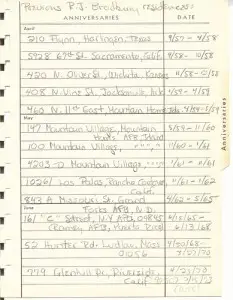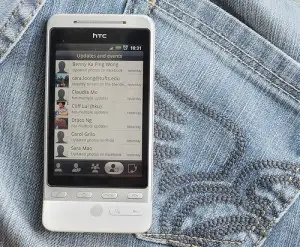Your address book is the future of social networks
There are more than one billion people, who are members of some sort of social network website. But, will these websites be the future platforms, where we can engage to create social networks? I doubt it. The future will go back to your address book, where it has always been.
Address book
An address book can combine contact details and much more information people add to it. Now, imagine these contacts are updated constantly adding new information available depending on each person and the social network they belong to. The HTC android driven mobile phone has already got that function. It connects you to certain social network websites and matches them to your address book. So, it really does not matter what website is behind it, you simply get an overview or stream of information of your friends's and colleagues's activities at various websites under each (online active) contact in your address book:
- Profile images and latest photos are updated or downloaded.
- Events, meetings, etc. are downloaded from a shared calendar.
- Latest status updates, blog posts, written articles etc. are listed under each contact.
Own control vs. Facebook control
Now, the best way to decide what is public or private and who shall see what, would be if you have complete control over your information. In the case of Facebook, they want to do that job for you and that is the problem. If one looks at the continuous privacy issues of Facebook, it is about time that information gets protected from companies, which change their terms of services every second day (e.g. Apple).
Steve Boyd writes: “One simple observation is that users will not be able to get the privacy they want (or think they already have, or at least had in the past) in today's Facebook.” and he concludes that Facebook, therefore, is not the future.
However, the answer of many social network websites is to collect as much personal information to become your personal address book. The Facebook friend finder stores all the information forever and therefore comes up with intriguing friend suggestions.
Reality check
The problem is that there is not really a serious initiative to work on an alternative open system, where users could control their data and give social networks access to the information they want to share. Still, in a call for a Facebook alternative, people donated in short time a hundred thousand dollars.
Another, albeit failed and disappointing, attempt was Open Social, initiated by Google about two years ago. The good news, however, is that even Facebook will have difficulties to be the decisive player. That might (hopefully) be history soon.

